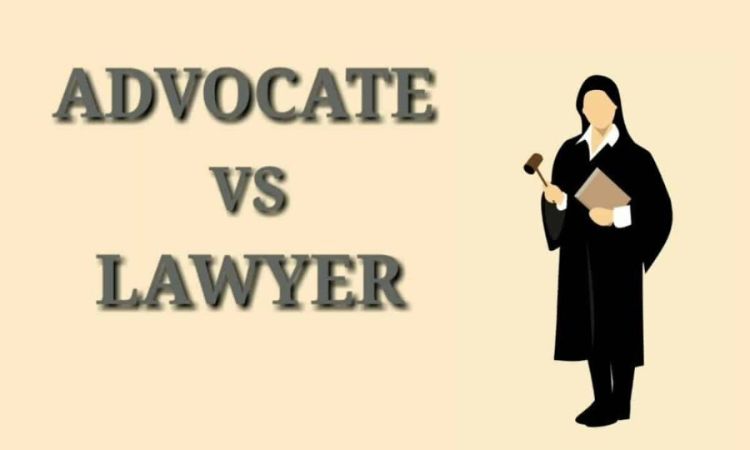What is the difference between a lawyer and an attorney?
Legal matters can often be complex and overwhelming for individuals who require assistance or representation. In such situations, the terms “lawyer” and “attorney” are frequently used interchangeably, leading to confusion among many people. However, these two terms have subtle differences in their meanings and responsibilities. This article aims to shed light on the disparities between a lawyer and an attorney, enabling readers to make informed decisions when seeking legal aid.
Understanding what is the difference between a lawyer and an attorney
What is a Lawyer?
A lawyer is a professional who has obtained a law degree and is authorized to practice law. Lawyers are legal experts who provide advice, counsel, and representation to clients in various legal matters. Their primary role is to advocate for their client’s interests and rights while ensuring adherence to the legal system’s rules and regulations.
What is an Attorney?
An attorney is a more specific term within the legal profession. Attorneys are lawyers who have passed the bar exam and are licensed to practice law in a particular jurisdiction. They are granted the authority to represent clients in court and other legal proceedings, making them more involved in litigation and dispute resolution.
Educational Background and Training
Lawyer’s Education
To become a lawyer, one must complete a law degree, typically a Juris Doctor (J.D.) in the United States. The journey toward becoming a lawyer involves intensive legal education, which includes studying various branches of law, such as civil law, criminal law, corporate law, and more.
Attorney’s Education
Becoming an attorney requires the same legal education as becoming a lawyer, but it goes beyond that. After obtaining a law degree, aspiring attorneys must pass the bar exam in the state or country they wish to practice in. This exam evaluates their knowledge of the law and their ability to apply legal principles effectively.

Scope of Practice
Lawyers’ Roles and Responsibilities
Lawyers have a broad scope of practice. They can offer legal advice, draft legal documents, negotiate contracts, and represent clients in mediation or arbitration. However, lawyers may not have the authority to represent clients in court, depending on the jurisdiction and their licensing.
Attorneys’ Roles and Responsibilities
Attorneys have an even broader scope of practice. They can perform all the functions of a lawyer, including providing legal counsel and drafting documents, but they also have the authority to represent clients in court and present cases before judges and juries. Read more
Licensing and Accreditation
Lawyer Licensing
To practice law, lawyers must obtain a license from the relevant bar association or regulatory body. This license allows them to offer legal services but might not grant them the right to appear in court. Read more Appellate Lawyer
Attorney Licensing
Attorneys, on the other hand, must obtain their license by passing the bar exam in the specific jurisdiction they intend to practice. This license gives them the full rights to practice law, both inside and outside the courtroom.
Representation in Court
Lawyers in Court
Lawyers who have not passed the bar exam can’t represent clients in court personally. However, they can work with licensed attorneys and provide legal support in preparing cases.
Attorneys in Court
Attorneys, having passed the bar exam, have the authority to represent clients in court, making them essential for litigation and trial proceedings.
Legal Services Offered
Services Offered by Lawyers
Lawyers primarily focus on legal consultations, research, drafting legal documents, and offering general advice on legal matters.
Services Offered by Attorneys
Attorneys are equipped to handle legal matters from start to finish, including courtroom representation and advocating for clients’ interests during trials.
Professional Ethics and Conduct
Legal Ethics for Lawyers
Lawyers must adhere to a strict code of professional ethics, ensuring confidentiality, loyalty to clients, and maintaining professionalism throughout their practice.
Legal Ethics for Attorneys
Attorneys are held to the same ethical standards as lawyers, with additional responsibilities towards court procedures and maintaining the integrity of the legal system.

Cost and Fees
Legal Costs with Lawyers
Lawyers’ fees may vary based on the complexity of the case, their experience, and the legal services required.
Legal Costs with Attorneys
Attorney’s fees may be higher due to their specialization and their ability to represent clients in court. Discuss more about How to Claim Money from Facebook Class Action Lawsuit
Public Perception and Media Representation
Perceptions of Lawyers
The public perception of lawyers is influenced by media portrayals, which often sensationalize legal cases and emphasize financial gains.
Perceptions of Attorneys
Attorneys, particularly trial lawyers, may be portrayed as aggressive and ruthless, mainly due to their courtroom roles.
Similarities and Overlaps
Despite the distinctions, lawyers, and attorneys share a common foundation as legal professionals with a strong understanding of the law.
Differences and Distinctions
The main difference lies in attorneys’ ability to represent clients in court, which lawyers may not always be authorized to do.
Choosing Between a Lawyer and an Attorney
what is the difference between a lawyer and an attorney depends on the specific legal needs of individuals and the nature of their legal issues.
Conclusion
In conclusion, the terms “lawyer” and “attorney” may be used interchangeably, but there are important differences between the two in terms of education, licensing, and scope of practice. Both play crucial roles in the legal profession, ensuring that individuals have access to the legal aid they need. Understanding these distinctions empowers individuals to make informed decisions when seeking legal representation.
FAQs
Is there a difference between a lawyer and an attorney?
Yes, there is a difference. While all attorneys are lawyers, not all lawyers are licensed attorneys.
Can lawyers represent clients in court?
It depends on the jurisdiction and the specific licensing of the lawyer. In some cases, they may need to work with licensed attorneys for court representation.
What does the bar exam assess for attorneys?
The bar exam evaluates an attorney’s knowledge of the law and their ability to apply legal principles effectively.
Are attorneys more expensive than lawyers?
Generally, yes. Due to their additional qualifications and court representation abilities, attorneys may charge higher fees.
How should I choose between a lawyer and an attorney?
Consider the nature of your legal issue. If you require courtroom representation, an attorney may be the better choice, but for general legal advice, a lawyer can be sufficient.
